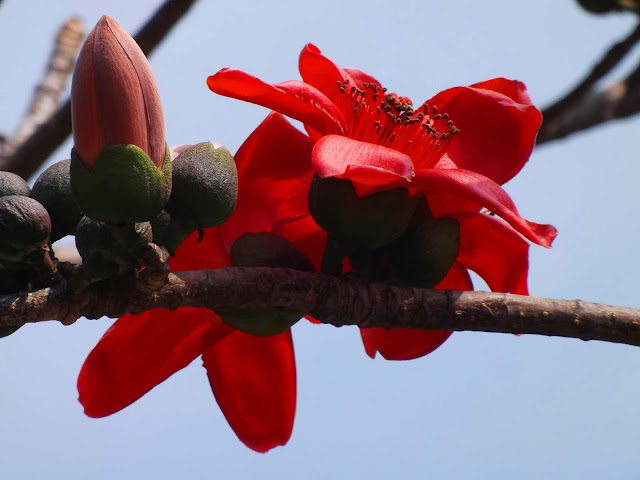Bon nil or Wild indigo, Tephrosia purpurea
Bon nil or Wild indigo (Tephrosia purpurea, Family: Fabaceae) is an annual or biennial leafy and bushy herb or undershrub with spreading branches, attaining a height of .75-1 m. Branches are glabrous or slightly hairy. It is found in thickets and forests all over the country. It is also found in tropical Africa, Indian subcontinent, some countries of Southeast Asia and some parts of Australia.
Other names: Lohamari, Jongli nil, Buno nil (Bang); Purple tephrosia, Fish poison (Eng).
Leaves are light green, pinnately compound, 6-10 cm long, leaflets 15-21, paripinnate or imparipinnate, opposite, ovate-oblanceolate, glabrous above, silky hairs bebeath.
Flowers are Pea-like, 2-lipped, purple, 8-10 mm long, The corolla is two times longer than the calyx. 2-4 flowers in axillary inflorescence (6-18 cm long). It flowers in autumn (Sep-Nov).
Fruit is legume, 4-6 cm long, linear, slightly curved at the top, dark brown when dry, dehiscent. Seeds are inedible, 5-9. Flowers and fruits can be seen at a time on same plant. It is propagated by seeds.
As an ornamental plant it can be planted for its spectacular flowers. Root and seed are used as pesticide. Leaves are tonic, diuretic and laxative. Pods are used in worms. Leaves are used as fish-poison. Root is used in stomach ache, arthrits and asthma. Seed oil is used in scabies, itching and skin diseases. The plant is used as green manure somewhere.
Synonyms: Cracca piscatoria, Cracca purpurea, Galega piscatoria, Glycyrrhiza mairei, Tephrosia colonila, Tephrosia crassa, Tephrosia diffusa, Tephrosia indigofera, Tephrosia ionophlebia, Tephrosia lanceifolia, Tephrosia piscatoria, Tephrosia purpurea var. diffusa, Tephrosia wallichii.





I definitely enjoying every little bit of it. It is a great website and nice share. I want to thank you. Good job! You guys do a great blog, and have some great contents. Keep up the good work. acheter kit champignon magique
ReplyDelete4D99A3D3CF
ReplyDeletekiralık hacker
hacker arıyorum
belek
kadriye
serik
3226DF3A8A
ReplyDeleteTakipçi Satın Al
Footer Link Satın Al
Coin Kazanma
Pokemon GO Promosyon Kodu
Whiteout Survival Hediye Kodu